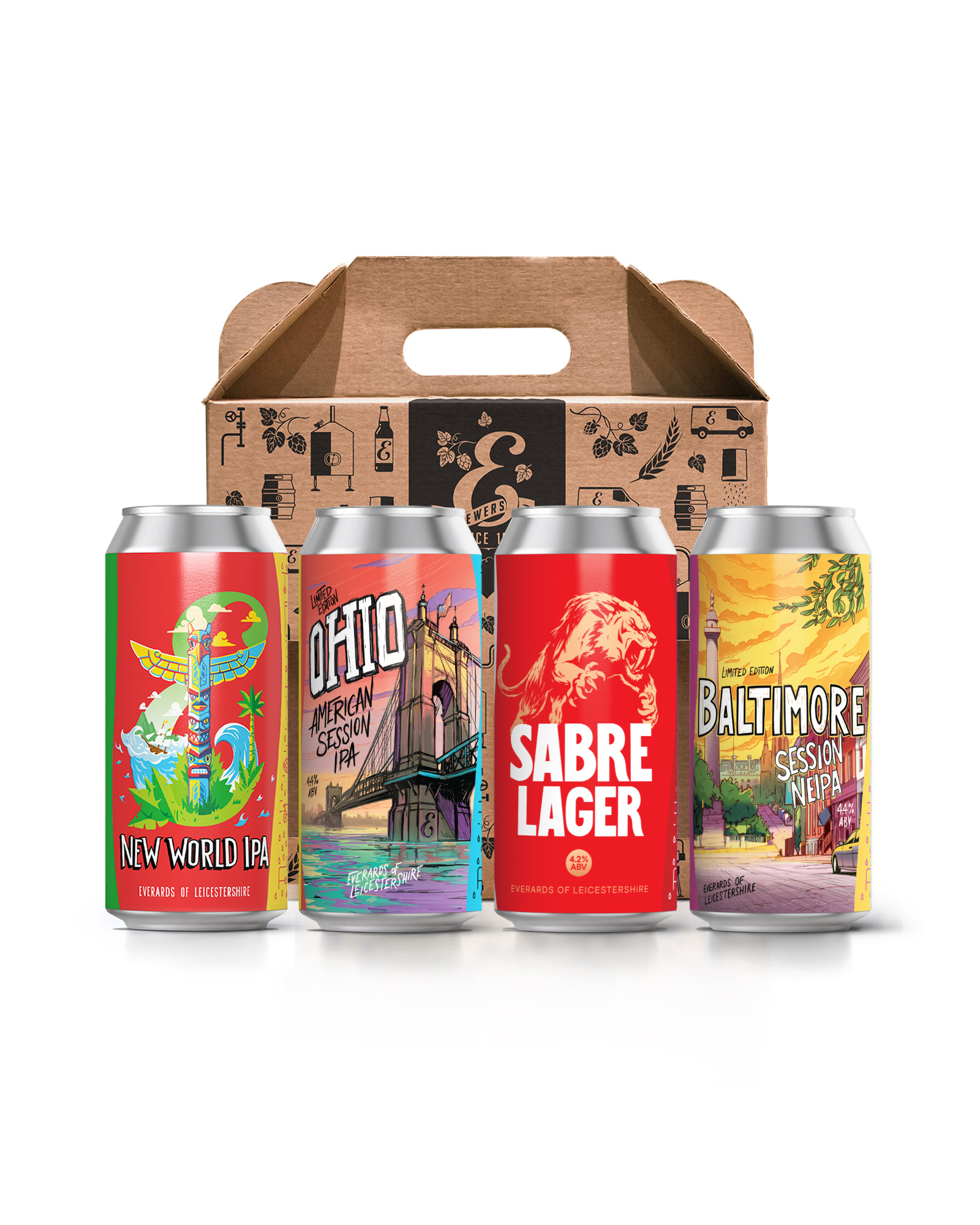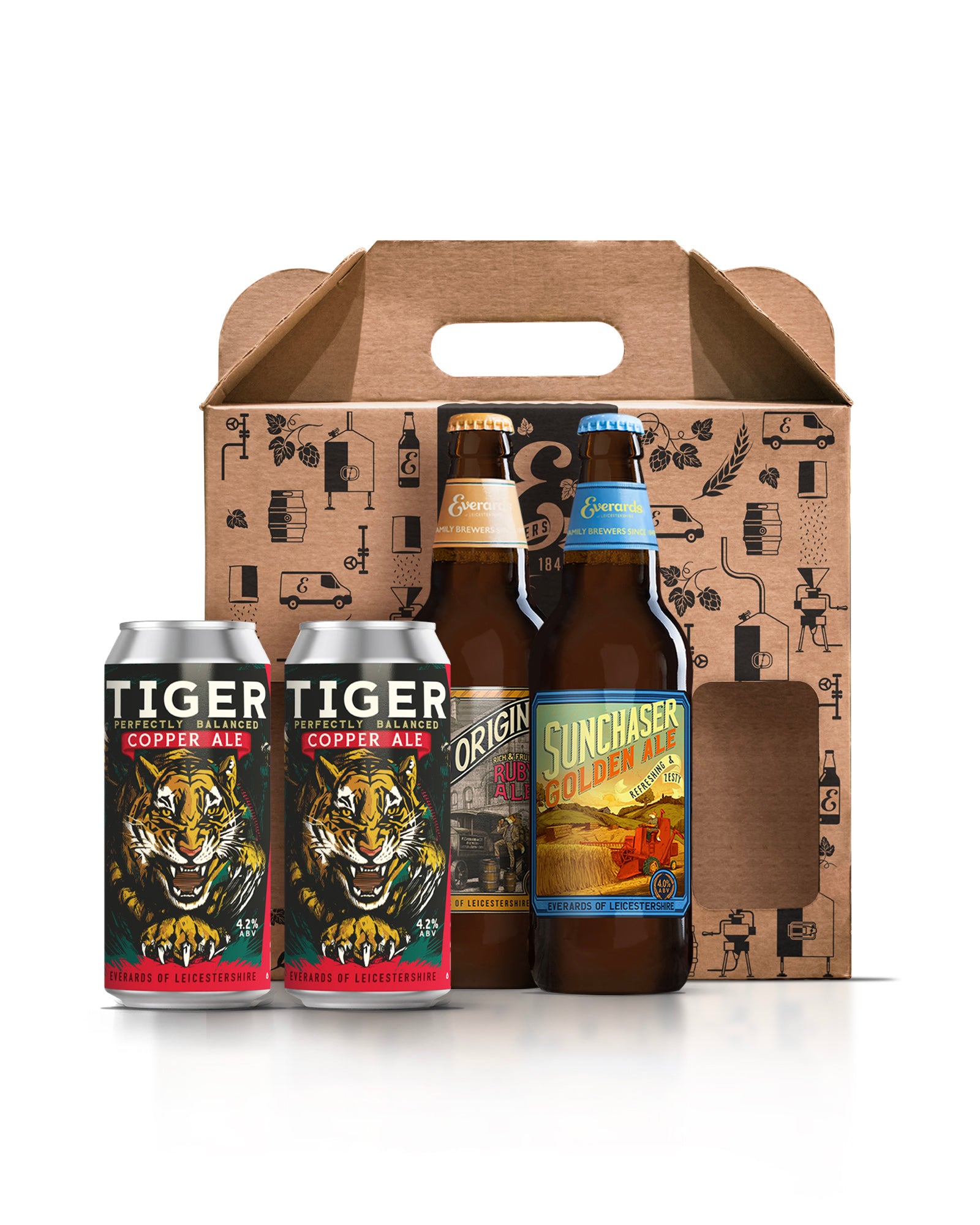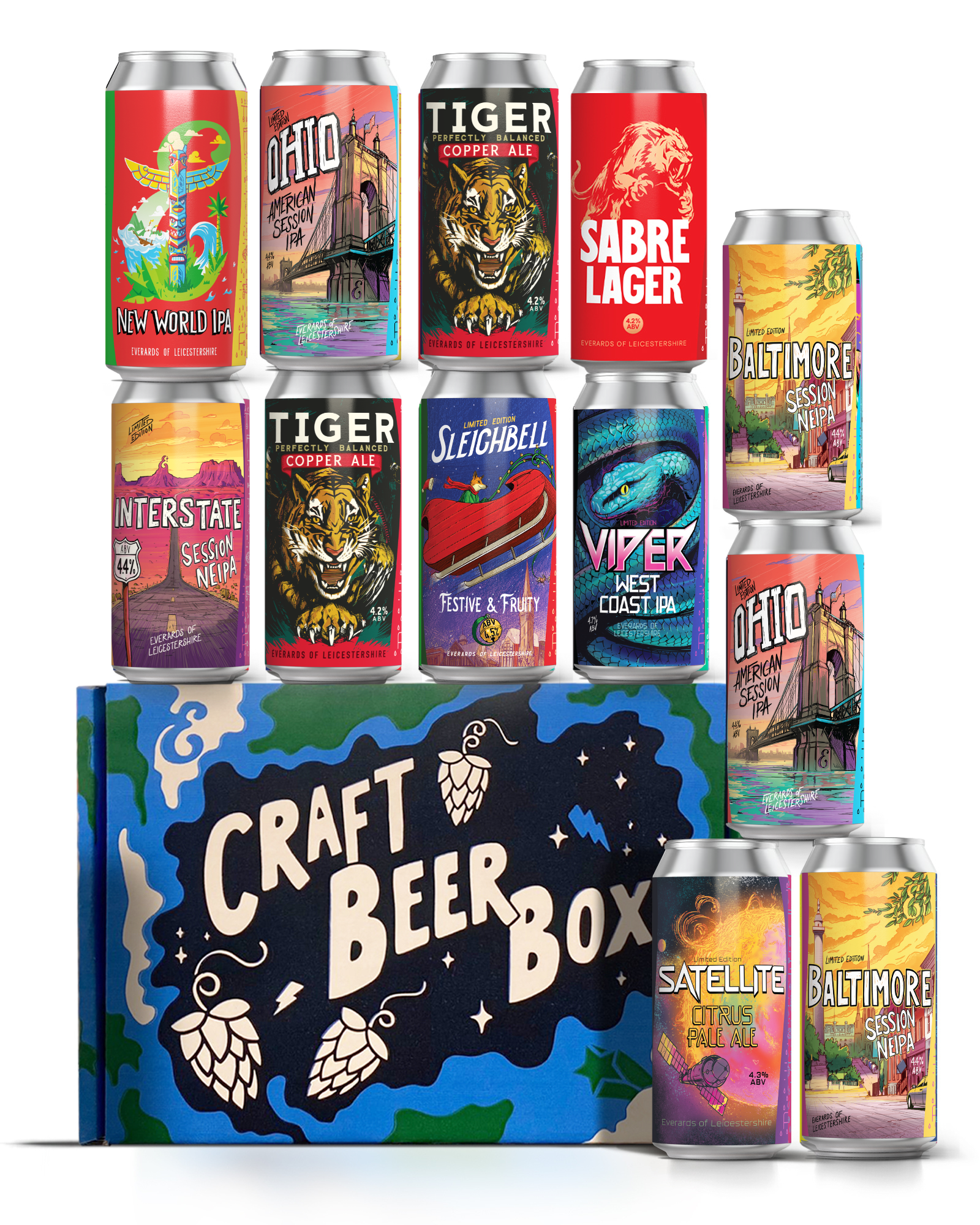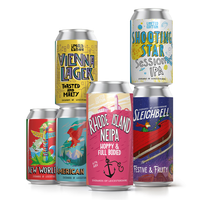If you're a beer lover, you may be wondering: does beer expire? Can you still enjoy that six-pack you bought last month, or are you better off pouring it down the drain? In this blog post, we'll explore the shelf life of beer and answer some common questions about beer expiration – because no one enjoys pouring beer away!
Firstly, it's important to note that all beers have a "best before" date. This date indicates the date range when the beer is at its highest quality and optimal flavour. However, it doesn’t necessarily mean that the beer is unsafe or unpleasant to drink after that date. In fact, many factors contribute to how long a beer lasts, including the type of beer, its alcohol content, and how it's stored.
At Everards, we have a best-before date of 6 weeks on cask beer, 3 months on keg beer and 9 months on bottles and cans. Cask beer is a fresh live product which will deteriorate quickly, even in optimal conditions a bit like fresh milk. Keg beer for pubs is often filtered and doesn’t contain live yeast, so will store for slightly longer.
Many beers, particularly those with a higher alcohol content, can improve with age. Some beer lovers even collect rare, aged beers like fine wines, valuing their complexity and depth of flavours. However, most commonly found beers, such as lagers or ales, are not meant to be aged and will start to deteriorate and go stale over time.
Many of the factors affecting the time beer will keep fresh for are determined in the brewery, by the beer style and package type. The brewers will understand how long each of their beers, in it’s relevant packaging, will keep for and will add best-before dates accordingly. However, the freshness of the beer can be heavily influenced by how it's stored. Beer should always be kept in a cool, dry place. Sunlight, heat, and oxygen are all enemies of beer, which can cause chemical reactions to occur and spoil the flavour of your favourite brew. Bottled beers, in particular those that are not in amber or brown glass, should ideally be stored in a dark place away from light as the transparent nature of the glass can allow a ‘skunk-like’ aroma to develop. On the other hand, canned beer can be kept in a pantry or cupboard as long as those places are cool and dry – direct sunlight may still warm the can up.
So how do you know if your beer is still good to drink? The easiest way is to look at its appearance and smell it. If the beer looks cloudy or has sediment at the bottom of the bottle or can, it is likely past its prime – although you should check whether the beer is intended to be hazy by design. If the beer smells off, sour, or skunky, it's also past its best. Similarly, tasting the beer can also help determine if it's gone bad. Old beer can taste flat, and metallic, or take on the smell of wet cardboard.
In conclusion, beer does deteriorate over time, and its shelf life depends on many factors. Any beer you buy should be clearly marked with a best-before-date. Stored properly, beers should last up to their "best by" date and possibly beyond. Beer that is stored at high temperatures, exposed to light, or not sealed correctly will start deteriorating and go stale more quickly. So, if you want to enjoy a delicious, fresh-tasting beer every time, store it correctly and always check for freshness before drinking. And if in doubt, pour it out!







